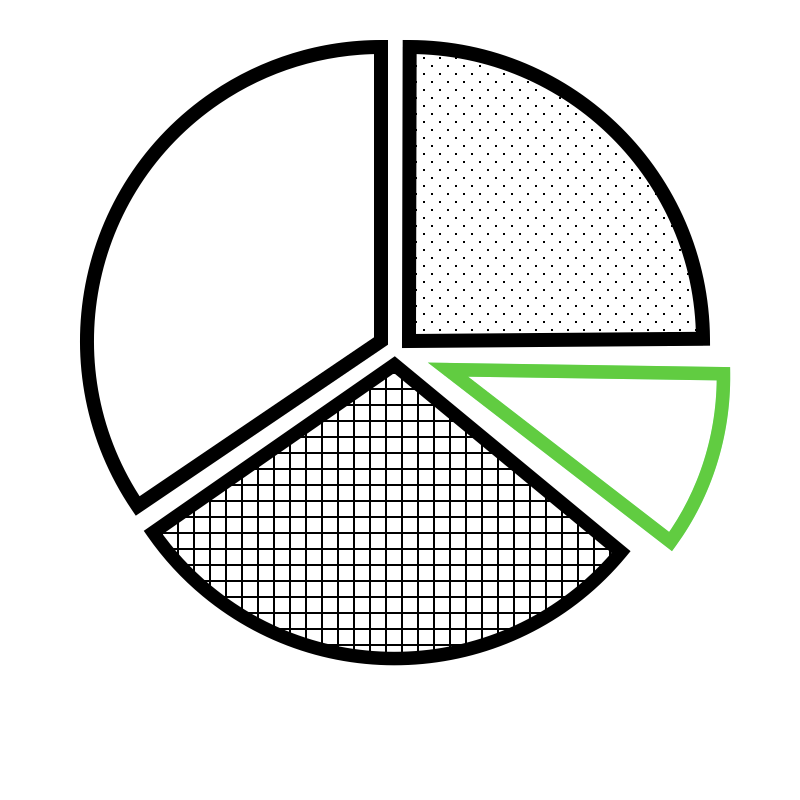Collaboration in times of corona
With who do you eat your pie?
April 2020 - If there is one thing that we can learn from the coronavirus pandemic, it is the importance of working in collaboration. Already in 2000, Austin (Emeritus Professor at Harvard University, author of 100+ publications and case studies on alliances) predicted that the 21st century would be an age of accelerated interdependence (1). His words could not have been more relevant today.
The United Nations has declared that partnerships (between national governments, the international community, civil society and the private sector) are essential to reach the 2030 sustainable development agenda (2). COVID-19 can be seen as the latest wicked problem that humanity is facing. The literature distinguishes between simple, complex and wicked problems (3), of which the latter is defined as an interlinked web of problems, for which standard solutions can not be applied (4). It is problems such as climate change, desertification and poverty that fall into this category. The coronavirus, and pandemics in general, can now be added to the list.
Wicked problems can not be tackled alone. Both academics as practioners agree that partnerships are essential in addressing problems of this complexity. Although partnerships are addressed as cross-sector partnerships, tripartite partnerships or quadruple helices, the goal of these alliances is the same: to create more value together than the individual organisations could have done alone (5).
The idea of partnerships is not new. In 1998, Elkington (famous for his triple bottom line, balancing social, environmental and economic value) argued that long-term partnerships are elemental to make the sustainability transition happen (6). Transition, or change so you will, takes place on the individual, organisational and societal level (7). For all of us, the impact of the coronavirus on our daily lives is relatable. It has made clear that the new reality is not something we can handle alone. Today, we need our friends, family and neighbours more than ever.
On an organisational level, most parties are coming to the same realization. Rather than taking the biggest slice of the pie, entire industries are looking for ways to divide what is left of it equally. Whether it is breweries developing hand sanitizer, donations to COVID-19 response Funds, financial support to smaller businesses, or the car industry producing life-saving ventilators.
On a societal level, we can not yet foresee the impact of the crisis. Global and local economies will undoubtedly suffer. Now, more than ever, there is the need of collaboration across sectors to rebuild economies. The central question here is: what value do we aim for? Will we return to the single-minded money earning logic (8), or are we ready to choose for a scenario in which social, environmental and economic value are finally in more balance? It is this question that we need to ask ourselves – as individuals, organisations and as a broader society. In order words: what slice of the pie do you take, and more importantly – with who do you eat your pie?
References
1) Austin, J. E. (2000a). Strategic collaborations between non-profits and businesses. Non-profit & Voluntary Sector Quarterly, 29(1), 69-97.
2) United Nations (2015). Sustainable Development Goals. Retrieved from: www.un.org/sustainabledevelopment/sustainable- development-goals/
3) Jordan, M. E., Kleinsasser, R. C., & Roe, M. F. (2014). Wicked prob- lems: Inescapable wickedity. Journal of Education for Teaching, 40(4), 415–430.
4) Rittel, H. W., & Webber, M. M. (1973). Dilemmas in a general theory of planning. Policy Sciences, 4(2), 155–169.
5) Austin, J. E., & Seitanidi, M. M. (2012a). Collaborative value creation: A review of partnering between non-profits and businesses: Part I. Value creation spectrum and collaboration stages. Non-profit and Voluntary Sector Quarterly, 41: 726– 758.
6) Elkington, J. (1998). Partnerships from Cannibals with Forks: The Triple bottom line of 21st Century Business. New Society Publishers, 1998.
7) Austin, J. E., & Seitanidi, M. M. (2012b). Collaborative value creation: A review of partnering between non-profits and businesses: Part II. Partnership processes and outcomes, Non-profit and Voluntary Sector Quarterly, 41: 929–968.
8) Osterwalder, A. (2004). The Business Model Ontology—A Proposition in a Design Science Approach. PhD Thesis, University of Lausanne, Switzerland.
